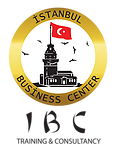
Purchasing and Materials Management - The Best 10-Day Training Course
Table of Contents
Course overview – LOGISTICS & SUPPLY CHAIN MANAGEMENT
The primary objectives of this course is to provide the participant with the critical Knowledge of logistics and supply chain management and the ability to apply this information in the work place, locally or globally, whether in the management of a firm’s related activities or within the scope of the logistics service provider’s activities.
Read More : Negotiation and Conflict Management in Organizations

Who will attend the training course – LOGISTICS & SUPPLY CHAIN MANAGEMENT?
- Logistics Professionals
- Distribution Managers
- Working in this field
- those who wants to start a career in this field
Course content of LOGISTICS & SUPPLY CHAIN MANAGEMENT
We have individual (private class one on one), group classes, morning, afternoon and evening sessions. Every day classes available. You may inquire through any of our training coordinator, plan ahead and start your career with us.
- Introduction to supply chain and logistics management
- Competitive supply chain strategies
- Customer service and logistics
- Marketing and Channel Management
- Outsourcing Trends and Best Practice
- Finance, Costing and Financial Control
- Warehouse and Supply Chain Network Design
- Logistics Contracts
- Supply Chain Information Systems
We provide two easy steps on how you can join the course.

How do I register in LOGISTICS & SUPPLY CHAIN MANAGEMENT?
- Send us email :
- passport copy or national id copy
- 1 copy of passport size photo
- education certificate copy
- CV or background profile
We are waiting for your questions about the training courses offered by our center IBC .
ISTANBUL BUSINESS CENTER
A group discount can be requested
Is there a group discount when registering for a LOGISTICS & SUPPLY CHAIN MANAGEMENT course?
- Browse our course catalog and select which courses meet your organization’s learning and development needs
- Receive a discount ranging from 10 to 20% based on the total number of participants you enroll per year. Discount tiers are outlined in the adjacent chart.
- Contact us below to register your participants and receive a unique discount code for your organization. From there, our team will work with you to enroll your employees.

The Short Course Experience – LOGISTICS & SUPPLY CHAIN MANAGEMENT course
Our 2- to 5-day short courses (LOGISTICS & SUPPLY CHAIN MANAGEMENT) offer a unique opportunity to step outside of the pressures of your day-to-day work life and challenge yourself with new ideas and skills in a low-risk environment. Our team is here to guide you each step of the way
To join our YouTube channel:
Contact us – Istanbul Business Center
Contact information:
Mobile: 00905340789498 – Whatsapp + Viber
Email
[email protected]
[email protected]
To communicate in Arabic:
You can view all programs through our website
Supply Chain Management
As you saw in the video, supply chain management is the process of managing the movement of the raw materials and parts from the beginning of production through delivery to the consumer. In many organizations, operational supply chain decisions are made hundreds of times each day affecting how products are developed, manufactured, moved, and sold. The complexity of the supply chain varies with the size of the business and the intricacy and quantity of items manufactured, but most supply chains have elements in common, such as the following:
- Customers: Customers start the chain of events when they decide to purchase a product that has been offered for sale by a company. If the product has to be manufactured, the sales order will include a requirement that needs to be fulfilled by the production facility.
- Planning: The planning department will create a production plan to produce the products to fulfill the customer’s orders. To manufacture the products, the company will then have to purchase the raw materials needed.
- Purchasing: The purchasing department receives a list of raw materials and services required by the production department to complete the customers’ orders.
- Inventory: The raw materials are received from the suppliers, checked for quality and accuracy, and moved into the warehouse.
- Production: Based on a production plan, the raw materials are moved to the production area. These raw materials are used to manufacture the finished products ordered by the customer and then sent to the warehouse where they await shipping.
- Transportation: When the finished product arrives in the warehouse, the shipping department determines the most efficient method to ship the products so they are delivered on or before the date specified by the customer.
Read More : Talent Management – Training Coursers 5 days – Turkey

 The Integrated Engineering Course in Oil and Gas – The best courses in Istanbul IBC25
The Integrated Engineering Course in Oil and Gas – The best courses in Istanbul IBC25  Logistics & Material Management – The best courses in Istanbul IBC40
Logistics & Material Management – The best courses in Istanbul IBC40  Warehousing And Materials Management – The Best 45-Training Course Istanbul
Warehousing And Materials Management – The Best 45-Training Course Istanbul  Purchasing and Materials Management – The Best 10-Day Training Course
Purchasing and Materials Management – The Best 10-Day Training Course  Finance for Non-Finance Professionals – Our Best courses 30
Finance for Non-Finance Professionals – Our Best courses 30